Publications
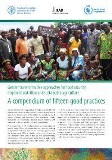
Gender transformative approaches for food security, improved nutrition and sustainable agriculture - A compendium of fifteen good practices
10/12/2020
This flyer to the publication Gender transformative approaches for food security, improved nutrition and sustainable agriculture - A compendium of fifteen good practices provides a background to the Compendium and briefly summarizies the fifteen good practices. Gender transformative approaches (GTAs) are essential to the achievement of food security, improved nutrition and sustainable agricultural development. 4 pp.
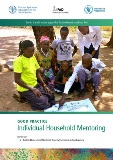
GOOD PRACTICE Individual Household Mentoring
09/12/2020
Projects supported by the International Fund for Agricultural Development (IFAD) identify individual household mentoring as a project activity and provide funding to the Ministry of Local Government for implementation. They build on experiences on household mentoring gained in an earlier IFAD-supported District Livelihoods Support Programme. This document examines the purpose of the methodology and the domains of gender inequality that are addressed. 11 pp.
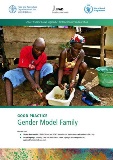
GOOD PRACTICE Gender Model Family
09/12/2020
Following a strong backlash from husbands who felt excluded from a revolving fund that was established to enable women to rehabilitate their livelihoods, Social Enterprise Development Foundation (SEND) International concluded that livelihood and food security projects would not be sustainable unless they started from a foundation of gender equity within the household. 11 pp.
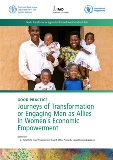
GOOD PRACTICE Journeys of Transformation or Engaging Men as Allies in Women’s Economic Empowerment
09/12/2020
Promundo is a global leader in promoting gender justice and preventing violence by engaging men and boys in partnership with women, girls and people of all gender identities. The Journeys of Transformation methodology emerged from the vision that, although women’s economic empowerment programming has powerful benefits on its own, it can be made even more effective at advancing gender equality when men are deliberately engaged as allies. 10 pp.
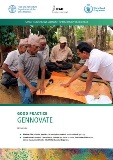
GOOD PRACTICE GENNOVATE
09/12/2020
This paper presents the gender norms that related particularly to agricultural and environmental innovation and technology adoption, which include: the distribution of labour and benefits, decision making, participation in projects, programs and markets, access to and control over assets, and mobility. 7 pp.
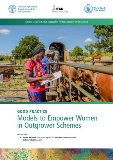
GOOD PRACTICE Models to Empower Women in Outgrower Schemes
09/12/2020
This publication outlines the key entry points for applying the methodology: agribusinesses that are currently working with small-scale farmers as outgrowers or planning to work with them. Although gender issues are not the primary focus of its investments, AgDevCo believes that gender equality and women’s empowerment are significant factors in the success of its investments.9 pp.

GOOD PRACTICE Farmers’ Field and Business Schools
09/12/2020
The Farmers’ Field and Business Schools (FFBS) integrated gender transformative capacity building model for food and nutrition security involves building agency, transforming structures and changing relations in accordance with CARE’s Gender Equality and Women’s Voice Framework. This brochure presents the FFBS model as the foundation of CARE’s new programmatic framework for food and nutrition security, ‘She Feeds the World’ 10 pp.
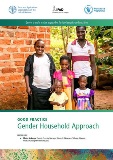
GOOD PRACTICE Gender Household Approach
09/12/2020
The purpose of the HRNS Gender Household Approach methodology is to promote farming as a family business. In implementing this methodology, the main objectives include joint decision making and planning in smallholder farming households, the active participation of women in training activities, and the inclusion of women in leadership positions in farmer organizations. This publication addresses key domains of gender inequality. 9 pp.
